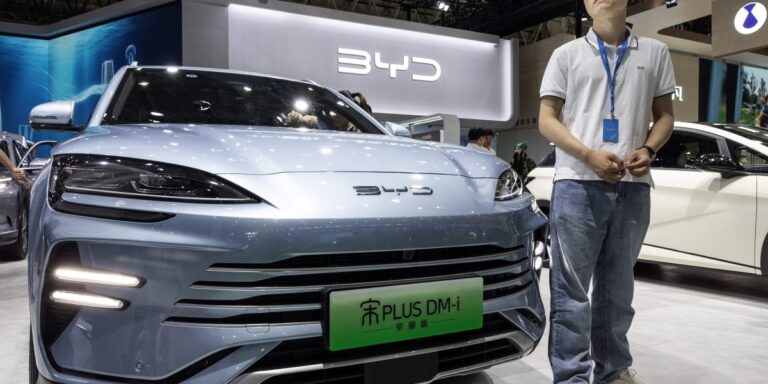Beijing has signaled it may retaliate against the European Union in a trade dispute that shows signs of escalating as well as competition between China and the United States.
A post on Yuyuan Dantian, a social media account linked to Chinese state media, said that if the EU continues to investigate Chinese companies, China “very likely will have to take a series of measures to fight back.” “It’s expensive.” The Chinese government has regularly used these channels as a way to signal its views on trade.
The EU is investigating Chinese subsidies across a range of industries, threatening tariffs on electric car makers and locking companies out of railway and energy tenders. President Xi Jinping visited Europe last month and sought to prevent European countries from following the path of the United States, but the United States last week announced new taxes on some imports from China, There is growing concern in Beijing that its allies will follow suit.
The Chinese state media post did not specify any countermeasures, but cited a lawyer who pointed out that the EU relies on China as a buyer of agricultural products such as wine and dairy products, as well as aircraft. The European Union’s Chinese Chamber of Commerce echoed this warning, saying “Europe’s wine and dairy products could be caught in the crossfire.”
These three industries accounted for only about 3% of China’s imports from Europe in the past year, so China’s actions in these areas are likely to have limited economic impact to begin with.
Still, if the two countries impose tariffs on each other or use other tools to curb trade and investment, it poses a risk to businesses around the world that are already grappling with the fallout from the U.S.-China trade conflict. It will increase.
“There is likely to be a bigger puzzle with more moving parts,” said Hosku Lee Makiyama, director of the European Center for International Political Economy in Brussels. For now, he said, China’s signals through social media and industry associations are “a threat that governments can avoid without stepping back.”
History has shown that food and beverages are at high risk of being targeted by trade retaliation. In the past, China has blocked imports of Australian wine and barley, fruit from the Philippines and salmon from Norway, citing food safety and anti-dumping concerns.
If China opposes exports to Europe, it could open the door for other producers. France is Europe’s largest exporter of wine to China. However, China’s wine imports have been declining in recent years, and China recently lifted punitive duties on Australian wine.
Last weekend, China, along with the United States and other countries, announced an investigation into the EU’s suspicions of chemical dumping. In January, China launched an anti-dumping investigation into EU alcoholic beverages, including cognac, but the issue came up during President Xi’s talks in France.
EU leaders say the region’s industries are at risk from subsidized Chinese production and do not enjoy fair access to the Chinese market. Although some member states are wary of responding with tariffs, European Commission President Ursula von der Leyen said after her meeting with Xi that Europe was ready to deploy all available tools. .
The investigations that have shaken the Chinese government include investigations into EV producers that could lead to tariffs as early as July, and Chinese companies withdrawing from bids to supply solar energy in Romania and railways in Bulgaria. It also includes the investigation that led to the incident.
Europe supports farmers with tens of billions of euros in subsidies each year and has sought to keep agriculture out of widespread trade disputes.

